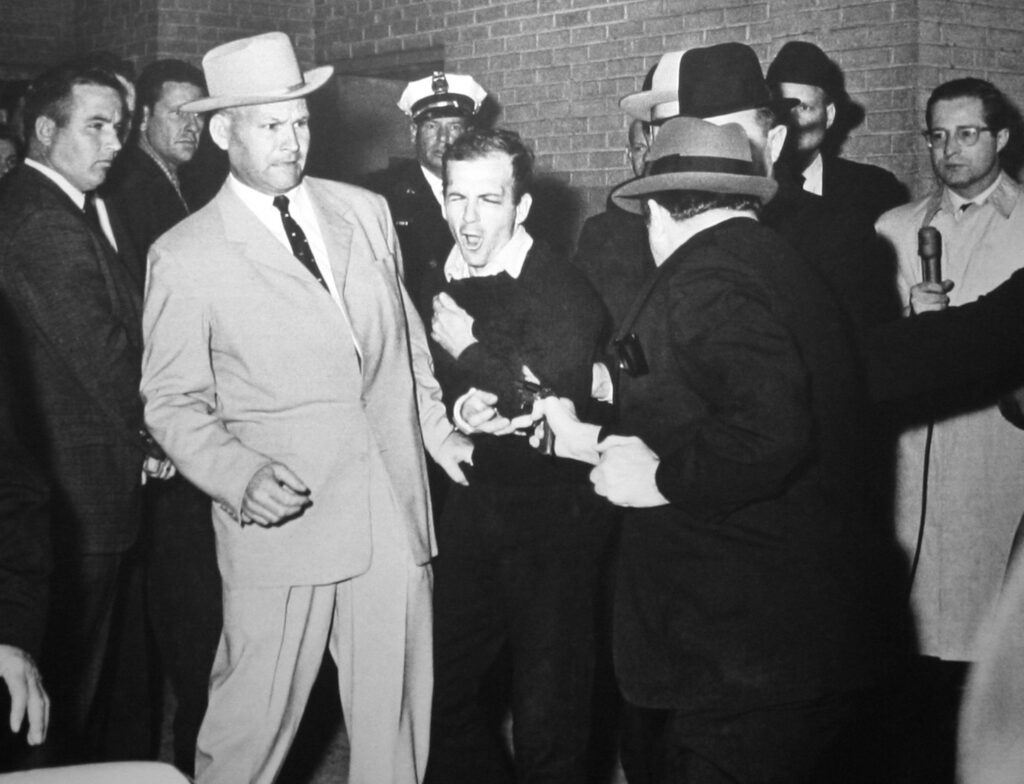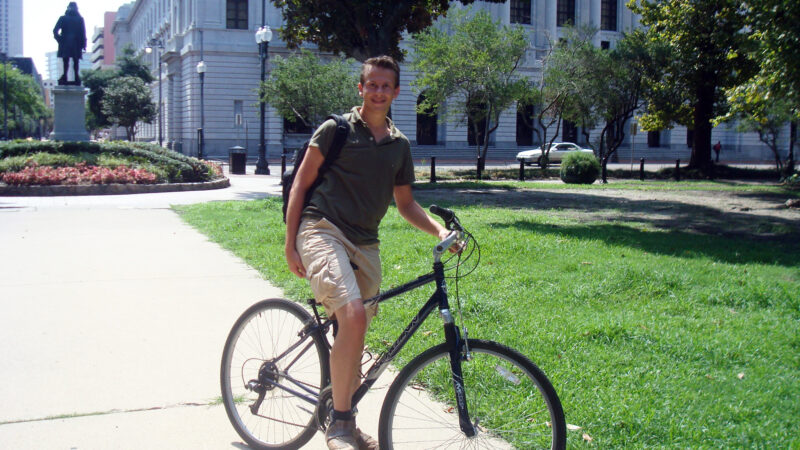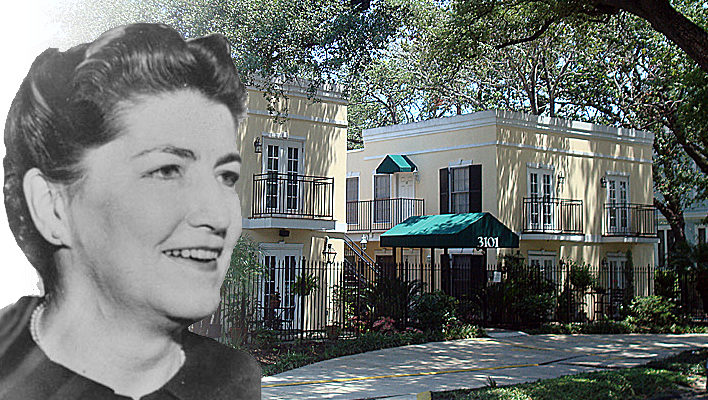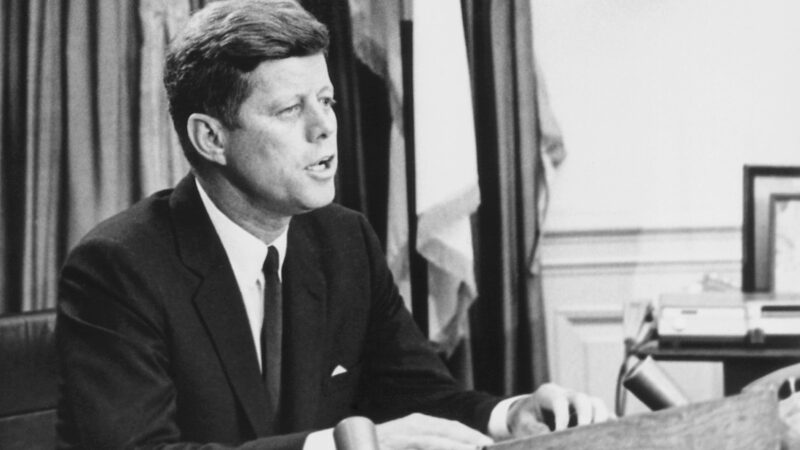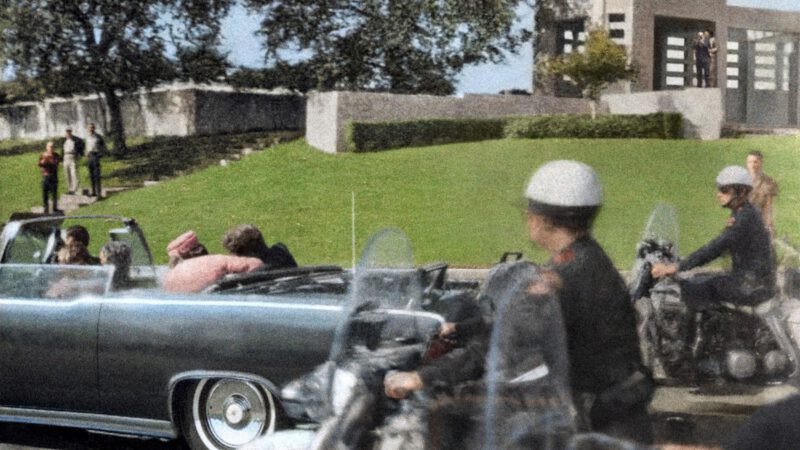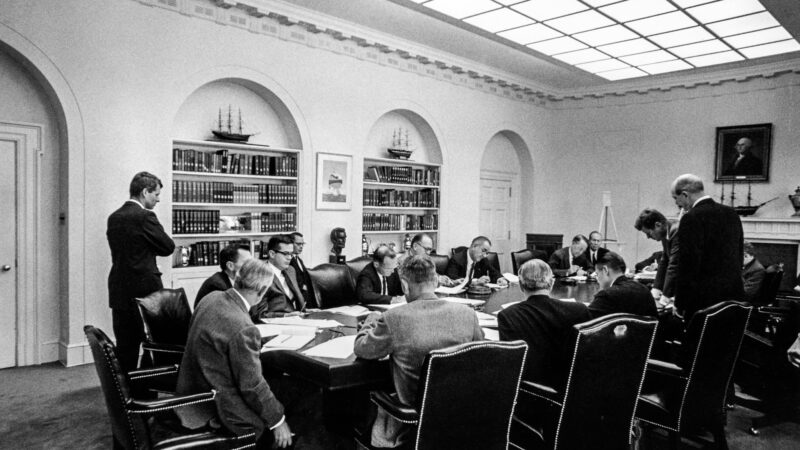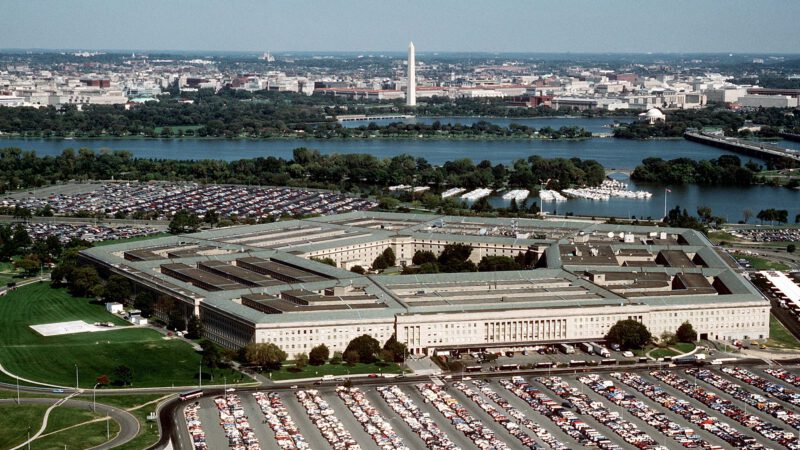48 hours: Oswald in jail
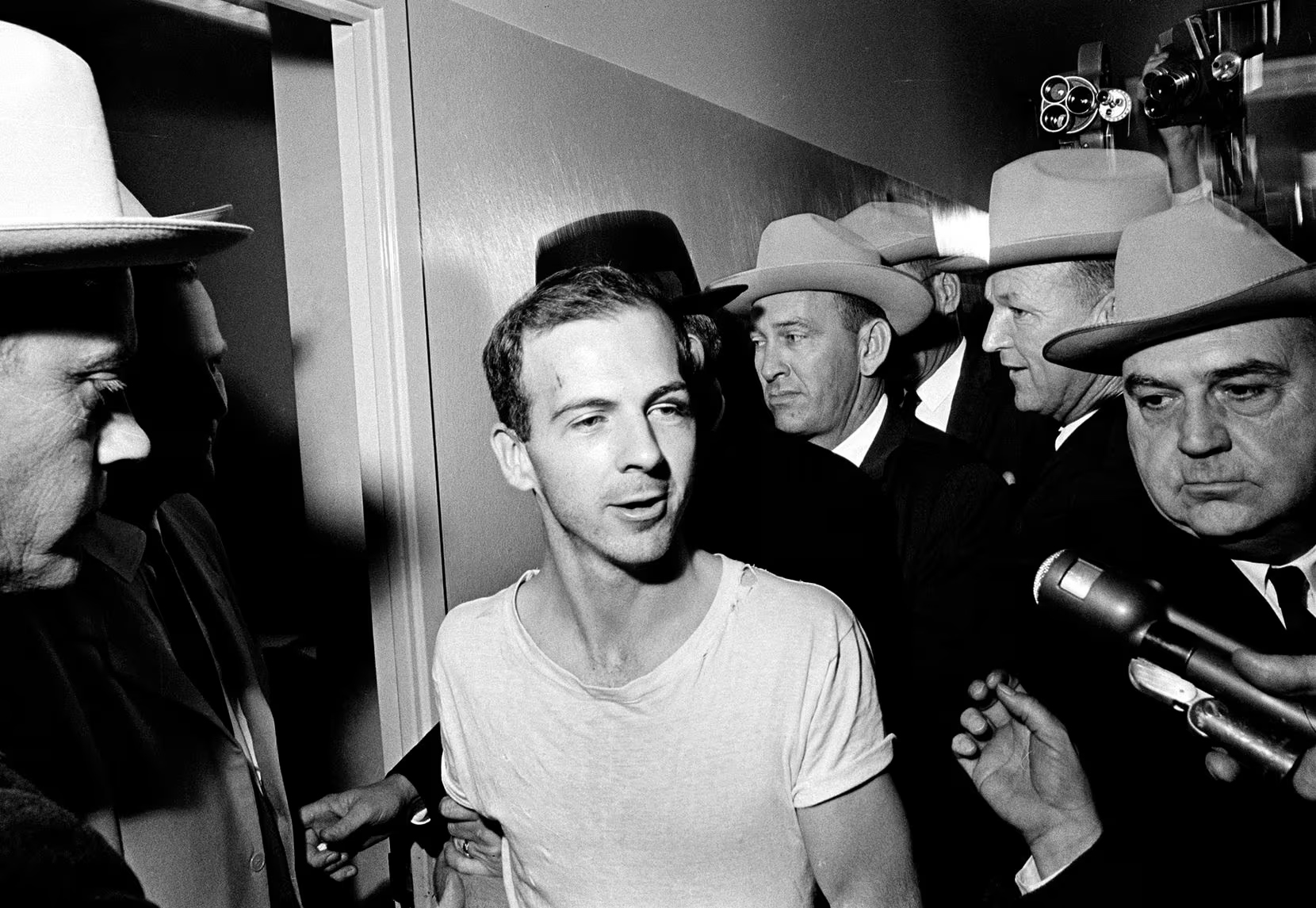
After his arrest, Oswald was taken to the police headquarters in the city hall, not far from Dealey Plaza. He was extensively interrogated, especially by Commissioner Will Fritz. FBI agent James Hosty was also present. Multiple line-ups were conducted, during which various witnesses identified Oswald among rows of extras as the suspect – an easy task given Oswald’s cheap clothing and the blood above his eye, making him stand out among the well-dressed men beside him. The line-ups were a farce, and Oswald, continually proclaiming his innocence, considered himself a scapegoat. Before the lights went out in Oswald’s cell around half past two that night, a press conference took place. Among the attendees was sensation-seeker and nightclub owner Jack Ruby, well-known to many local police officers and journalists. He heard that Oswald would be quickly moved to another prison and even corrected, audible on television, prosecutor Henry Wade, stating that Oswald was a member of the Free Cuba Committee instead of the Fair Play for Cuba Committee. Jack Ruby had visited the police station several times that day; late in the evening, he even brought twelve sandwiches for the officers, according to the Warren Commission report.
From half past ten in the morning on Saturday, November 23, the interrogations continued unabated. Oswald’s life was discussed step by step, surprisingly with remarkably few notes taken. Therefore, it will never be entirely clear what exactly was stated. Between 13:10 and 13:30 that afternoon, Oswald received visits from the most important women in his life: his wife and his mother. Oswald probably still did not grasp the seriousness of the situation, expressing concern about buying new shoes for his oldest daughter, June. His last words to Marina were, ‘Kiss June and Rachel for me. I love you… Be sure to buy shoes for June.’ At 15:30, Robert Oswald was also allowed ten minutes with his brother. He hadn’t seen him since Thanksgiving Day 1962, exactly a year before JFK’s assassination. ‘I didn’t recognize him anymore,’ said Robert, ‘and I couldn’t read anything in his eyes. He also declared his innocence to me.’
In Washington, DC, preparations were underway on Sunday morning, November 24, to transfer JFK’s casket from the White House to the Capitol, where the American people could bid farewell to their president for the rest of the day. In Dallas, Oswald’s final interrogation took place from 09:30 to 11:15. His transfer was on the agenda for that day; another prison would provide him with more protection.
At 11:21, officers attempted to escort Oswald through the basement of the Dallas police headquarters to a waiting car when suddenly an armed man broke free from the crowd of onlookers. One shot from Jack Ruby was enough: the whole world witnessed the murder of Lee Harvey Oswald. The shooter was immediately subdued. At 13:07, the now most hated man in the country was officially declared dead in the same hospital where Kennedy had breathed his last 48 hours and 7 minutes earlier. Both were buried almost simultaneously a day later. Jack Ruby quickly received an outpouring of support from Americans across the country. He received numerous letters, telegrams, and financial contributions for his legal defense. Protests even erupted in various states demanding his immediate release.
Links:
More on Jack Ruby here
